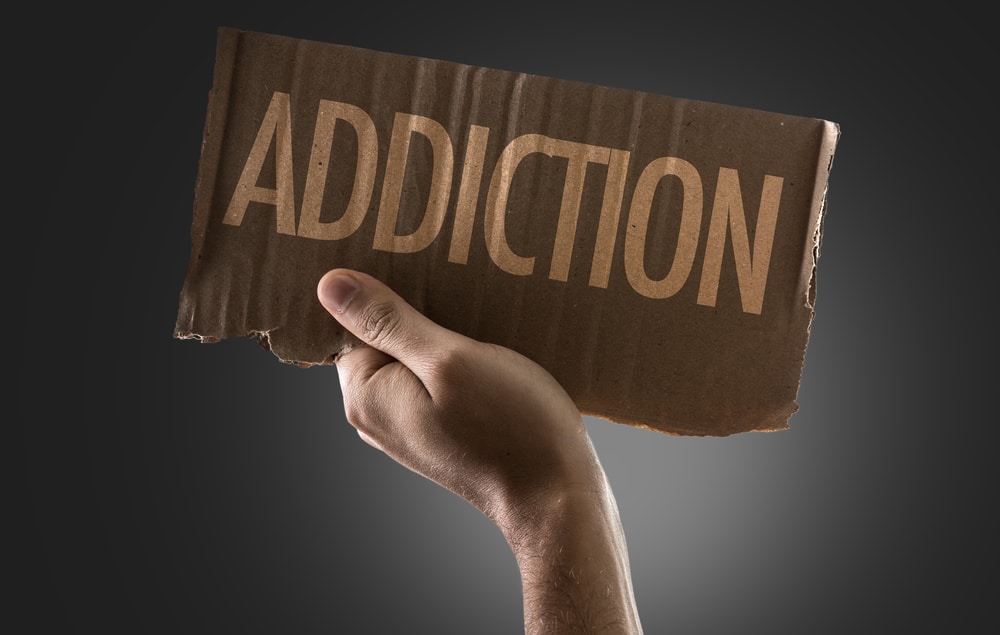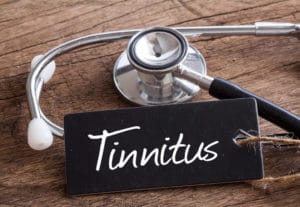
by Dr. C Lun Wang | Jul 26, 2017 | Uncategorized
People who get migraines know that when you feel one starting, you want to find a way to stop it as soon as possible. Unfortunately, this can be difficult as in a lot of cases the cause of the migraine is unknown. One possible cause of migraines that may be worth looking into if you suffer from migraines is triggers in the mouth and jaw.
The sides of your jaw are connected to your skull by two joints called the temporomandibular joints (TMJ). These joints help you to open and close your mouth when you talk, eat, and yawn. In many cases, headache pain can begin as pain or stiffness in these joints. Reasons for pain or stiffness in the jaw can include clenching of the jaw – possibly from feeling stress, or teeth grinding during sleep. Many people who do these things may not even realize they are doing them, even though the habits may be contributing to their migraines.
Signs that you may clench your jaw or grind your teeth include flat, broken, or chipped teeth; sensitive teeth; pain and soreness in the jaw or face; a tired or tight feeling jaw; or earaches with no other war problems. TMJ pain may also be cause by the way a person’s bite is lined up. If the bite is uneven, the muscles in the jaw may need to work harder or unevenly to bring the jaw back together. Over time this can cause a great deal of jaw pain. Additionally, people who use their jaw a lot such as frequent gum chewers may find that they get pain and soreness in the jaw, which can result in headaches.
If you have issues with migraines, and suspect you may also have jaw or face pain – it may be worthwhile to have a dentist check your teeth and jaw to determine if TMJ pain may be attributing to the migraines. The dentist may recommend treatment such as a mouth guard to avoid clenching or grinding of the teeth, or dental treatments to correct your bite if necessary.
For people who get migraines, and suspect that it may be caused by a dental issue, it may be a good idea to check in with a dentist. Additionally, trying to avoid habits such as chewing the fingernails, holding a phone between the shoulder and ear, chewing gum frequently, and eating sticky foods can help to reduce TMJ pain and subsequent migraines.

by Dr. C Lun Wang | Apr 24, 2017 | Uncategorized
Temporomandibular joint disorder (or TMJ) is the name for a group of issues which cause pain in the jaw and facial muscles that control the jaw. While the specific cause of TMJ is yet unknown, treatments and aids for the pains associated with TMJ are plentiful.
In many cases, jaw problems will resolve themselves within a few weeks to months. In order to help with the process of getting back to normal, and to avoid future issues with TMJ, the following aspects of treatment can be looked at.
To avoid pain associated with TMJ, it is best to avoid clenching or stress to the jaw, excessive chewing of gum, and holding a telephone between the ear and the shoulder – which may irritate jaw and neck muscles. If you are currently experiencing TMJ pain or dysfunction, the following therapies may provide some relief:
Eating a Soft Diet. Soft, easy-to-eat foods allow the jaw to rest while recovering from TMJ pain. Hard, crunchy, and chewy foods can cause further pain to those already experiencing TMJ pain. It is best to avoid stretching the jaw open to accommodate larger food items.
Ice & Heat. An ice pack will help to decrease inflammation and help to numb the pain associated with TMJ. Make sure not to place ice directly on the skin, and do not use ice for more than 10 minutes. Using a heat pack or hot water bottle can also provide relief from TMJ by improving jaw function and reducing the pain. Be careful not to burn your skin when using hot packs.
Pain Medications. Pain medications such as short term use of over the counter analgesics may provide temporary relief from jaw pain. If necessary, your doctor can prescribe you with a stronger medication if the symptoms cannot be helped by an over the counter product.
Jaw Exercises. Both strengthening and stretching exercises should be considered to help with TMJ pain. Strengthening exercises have been shown to help avoid future instances of TMJ once recovered, and stretching exercises are used to help with range of motion and pain. Your health care provider will be able to walk you through a series of exercises that will be appropriate for your case of TMJ.
Relaxation Techniques. TMJ can be caused by stress, so finding a great routine for relaxation can prove to be very helpful. Deep, slow breathing can help with pain and stress, and some people have found that yoga or massage therapy helps with their TMJ. It is important to also make a concentrated effort to relax the facial muscles, lips, and to keep the teeth apart.
While TMJ typically resolves on its own after a number of weeks, it’s important to solve the reason behind the issue in the first place. If your TMJ pain is reoccurring, or getting worse with time, it may be time to seek professional advice.

by Dr. C Lun Wang | Mar 30, 2017 | Uncategorized
In British Columbia, almost twenty percent of adults report regular, heavy alcohol-consumption. This begs the question, where is the line between enjoyment and addiction? Here are five signs that might mean that you (or someone you love) could be addicted to alcohol:
- Secrecy
Choosing to drink alone, or in secrecy, is often a sign of alcoholism. Often this is coupled with feeling guilt or shame about drinking.
- Neglecting Responsibilities
Performing poorly at work, failing classes, or skipping out on appointments and responsibilities are all signs of alcoholism – and can happen either due to hang overs, or due to the desire to drink being stronger than the desire to fulfill commitments.
- Using Alcohol to De-Stress
A majority of alcohol addiction problems start with using alcohol to relax and self-soothe. Reaching for the bottle after a rough day or stressful situation conditions the brain to crave it after every stressful event.
- Drinking at Inappropriate Times
Knowing that they will need to be in a potentially dangerous situation, such as driving a car or operating a boat, yet still choosing to drink is often a sign of addiction to alcohol. This can be attributed to either a lack of control, or a lack of care in relation to the level of care for having a drink.
- Inability to Quit
At times, the drinker may express a desire to quit or may try to quit, but will not be able to follow through. This also couples with the inability to control how much or when the person drinks.
These signs, along with others, could be indications of an addiction to alcohol, and may indicate an appropriate time to contact an alcohol counsellor. Anyone who wants to begin the process of breaking the addiction should prepare themselves for the symptoms of alcohol withdrawal syndrome, which may include anxiety, nausea, and headache, as well potential for irritability or mood swings.
by Dr. C Lun Wang | Jan 20, 2017 | Uncategorized
Headaches are just that, your head aches. When you are suffering from a headache and seeking medical advice, a common question you will hear is “what type of headache do you have”? Knowing the different types of headaches and their causes, can help find the most effective treatment.
Some common headaches include:
Tension Headache
A tension headache begins slowly and can be felt across the forehead just above the eyes. This type of headache may feel as though a tight band is around your head. Radiating pain down the back of the neck and into the shoulders. A pain level of mild to moderate. Tension headaches can last for a few hours; depending on your stress level, a tension headache can last for several days. Unfortunately, due to work, health and other contributing factors, tension headaches can become a chronic ailment, requiring intervention from your doctor.
Cluster Headache
Cluster headaches behave just as their name describes, in clusters. Several headaches or groups of headaches can come on in waves lasting 20 minutes or longer. Typically, a cluster headache is very severe on the pain scale and for the average suffer come on suddenly in the middle of the night. Other side effects of a cluster headache include nasal stuffiness, drooping eyelid and tearing of the eyes. Although rare, cluster headaches can afflict a sufferer for weeks and or months at a time. Non-life threatening, cluster headaches can be treated by your doctor, making them shorter and or less severe.
Sinus Headache
Sinus headaches are very common for those that live in damper climates like Vancouver. A sinus headache can be an early sign of a sinus infection. A sinus headache will present with a lot of pressure in the areas of your eyes, forehead and nose. Putting your head forward can cause that pressure and pain increase. A sinus headache is usually accompanied by congestion, a runny nose, fatigue and an achy feeling in your upper teeth or gums.
Migraine Headache
A migraine can be debilitating, with severe throbbing pain typically on one side of the head. Migraine sufferers have reported their headaches lasting from hours to days, usually requiring them to be in complete silence and darkness. For some, a migraine can present early warning signals called “auras” including flashes of light, a tingling sensation in their face, or blind spots. Recurring migraines should be treated by your doctor to confirm there is not an underlying medical concern causing the migraine.
Headaches are disruptive, whether it be a tension, sinus, cluster or migraine headache. Knowing the symptoms of the different types of headaches will better assist you and your doctor in determining what is the best treatment to eliminate the pain and other symptoms that can come with a headache. Treatment centres like the BC Head Pain Institute in Vancouver can work with you to determine the type, cause and treatment of your head pain.
by Dr. C Lun Wang | Dec 2, 2016 | Blog, Uncategorized
Have you ever wondered “What’s that ringing in my ears?” It might be what is referred to as Tinnitus. It’s a legitimate medical condition that we treat at the BC Head Pain Institute in Vancouver and Surrey BC. While it is localized to the ears, it isn’t “all in your head.”
There are several causes of tinnitus:
Earwax
A buildup of wax can cause tinnitus symptoms. Removing the excess wax may alleviate the pressure that is making the ringing or hissing sensation happen. Your ears will breathe easier and so will you, without that annoying ringing.
Migraine
Tinnitus can accompany a migraine, or present in the migraine’s recovery phase. Reducing migraine triggers can reduce the frequency of tinnitus. There are pharmaceutical options that can cut down on the frequency of migraines, as well as to alleviate pain.
Loud noises
If you are exposed to loud noises, whether it by your occupation or recreational environment, you might experience some tinnitus after exposure. It is important to use proper ear protection wherever possible, to reduce damage to your hearing and make it less likely that tinnitus will occur.
Medications
Tinnitus can be a side effect of existing drugs you are taking to treat other conditions. Check the listing of possible side effects to see if your normal regimen is impacting your ears and giving you that ringing noise.
Ear infection
If you have an infection, tinnitus may also be present. Make sure to complete your antibiotics to get rid of the bacteria causing your condition. Antibiotic drops might also be helpful to alleviate discomfort.
Jaw issues
A common condition called TMJ (temporomandibular joint syndrome) can also cause tinnitus. There are a variety of surgical and non-surgical options to treat TMJ, which may reduce the amount of tinnitus you are experiencing.
Tinnitus is not “all in your head” and the ringing can be decreased or eliminated with medical intervention by your dentist, orthodontist or doctor. Although sometimes Tinnitus goes away all on its own, a specialist at BC Head Pain is there to help you when it doesn’t.

by Dr. C Lun Wang | Jul 27, 2016 | Uncategorized
PART 1 of 2 in Dr. Wang’s Migraine Series
Over the past few days, I was contacted by journalists from Vancouver Sun and CBC Radio for my participation and comments on a local tragedy that occurred over the past weekend. If you haven’t heard or read about it already, Randy Janzen of Rosedale BC, committed triple murder before killing himself and setting his house on fire. Mr. Janzen first shot his grown daughter, then his wife and sister. He used a facebook post to explain his horrific actions. The main cause for his initial action was the fact that he can no longer watch his “little girl hurt for one more second”, Janzen claimed he shot his daughter in the head to relieve her of the pain and “severe depression that these migraines caused her.”
Because of the migraine pain that Emily suffered was stated as the prime motivator for Randy’s action, media as been very interested in obtaining and reporting the effects of migraines on a person and their families. Even though Randy did not suffer from migraines himself, there was clear indications that chronic pain such as this affects the psyche of all those around sufferer.
As a frontline health care worker and head pain therapist, we see the affect pain has on the lives of our patients, and the profound impact it has on their loved ones each and every day. We all live with pain, in fact pain is good, and it is our evolutionary warning and defense to keep us from hurting ourselves. When we come into contact with something sharp, or hot, or when we over exert ourselves, our nerves carries a signal to our brain that is interpreted as pain. Our brain then tells our body to find a way to avoid the source of the pain; however, there is a physiological and psychological response to that pain that is extremely negative when pain becomes chronic. Physiologically, there are chemical and cellular changes that can make the patient more sensitive to pain stimulants. The feedback loop from the brain will tell muscles surrounding the area of stimulus to become more tense. Pain will cause a change, and thus an imbalance, in brain chemistry; cause more production of some brain chemicals and less of other chemicals. Pain will also cause a change in brain wave activities, causing anxiety and sleep disorders.






